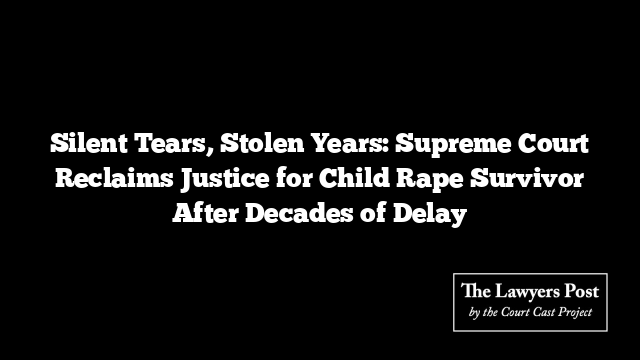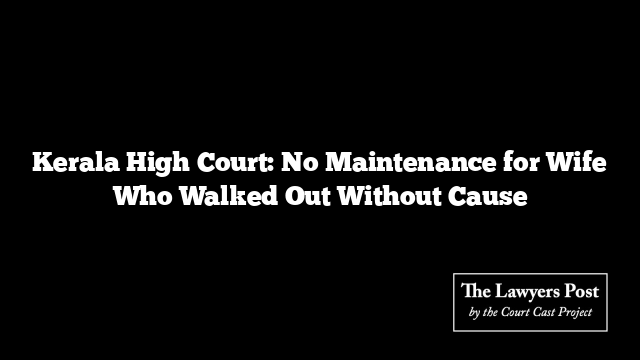The Supreme Court has revived a long-dormant flame of justice, overturning a 2013 acquittal handed down by the Rajasthan High Court in a 1986 child rape case. A six-year-old girl, violated and voiceless, had been denied justice for nearly four decades—not for lack of evidence, but because her trauma was met with judicial indifference.
In a powerful judgment, a bench comprising Justices Sanjay Karol and Vikram Nath tore apart the High Court’s decision to set aside the conviction simply because the child—during cross-examination—could not speak, and instead broke down in silent tears.
“Silence is not surrender,” the Supreme Court declared. “And in the case of a child, silence is often the loudest scream.” The High Court, in a mere six-page ruling, had dismissed a trial court conviction without meaningfully engaging with medical reports, eyewitness testimony, or the overwhelming context of the survivor’s trauma.
On that grim day in March 1986, the child was found unconscious and bleeding—eyewitness Gulab Chand had seen the accused, partially dressed, fleeing the scene. The victim had been left in his care while her mother was away for a funeral. What followed was a criminal trial that convicted the man in 1987, with the court handing down a seven-year sentence based on the gravity of the act and medical corroboration.
But 26 years later, the High Court reversed the conviction, deeming the child’s silence as weakness and minor inconsistencies in testimonies as fatal flaws. No consideration was given to the brutal reality that a six-year-old survivor might not be able to relive or articulate such horror in a courtroom.
The Supreme Court wasn’t having it.
“This isn’t a case of a hostile witness,” the judges said. “This is a case where trauma eclipsed the ability to speak. To equate the silence of a child with the silence of an adult is a miscarriage of empathy and a misreading of law.”
Medical evidence, which showed injuries consistent with sexual assault, had been brushed aside by the High Court, as was the testimony of an eyewitness who saw the accused at the scene. The top court highlighted how trauma does not erase truth—rather, it hides it behind layers of psychological shock and pain. And yet, even after all that, the High Court chose to name the child in its judgment, violating her privacy in a manner both tone-deaf and indefensible.
“There are wounds the body forgets, but the soul remembers,” the Supreme Court seemed to suggest as it reinstated the original conviction and ordered the accused to surrender within four weeks.
Justice, long deferred, is not justice denied—not when the highest court of the land is willing to listen to the silence between a child’s tears.





